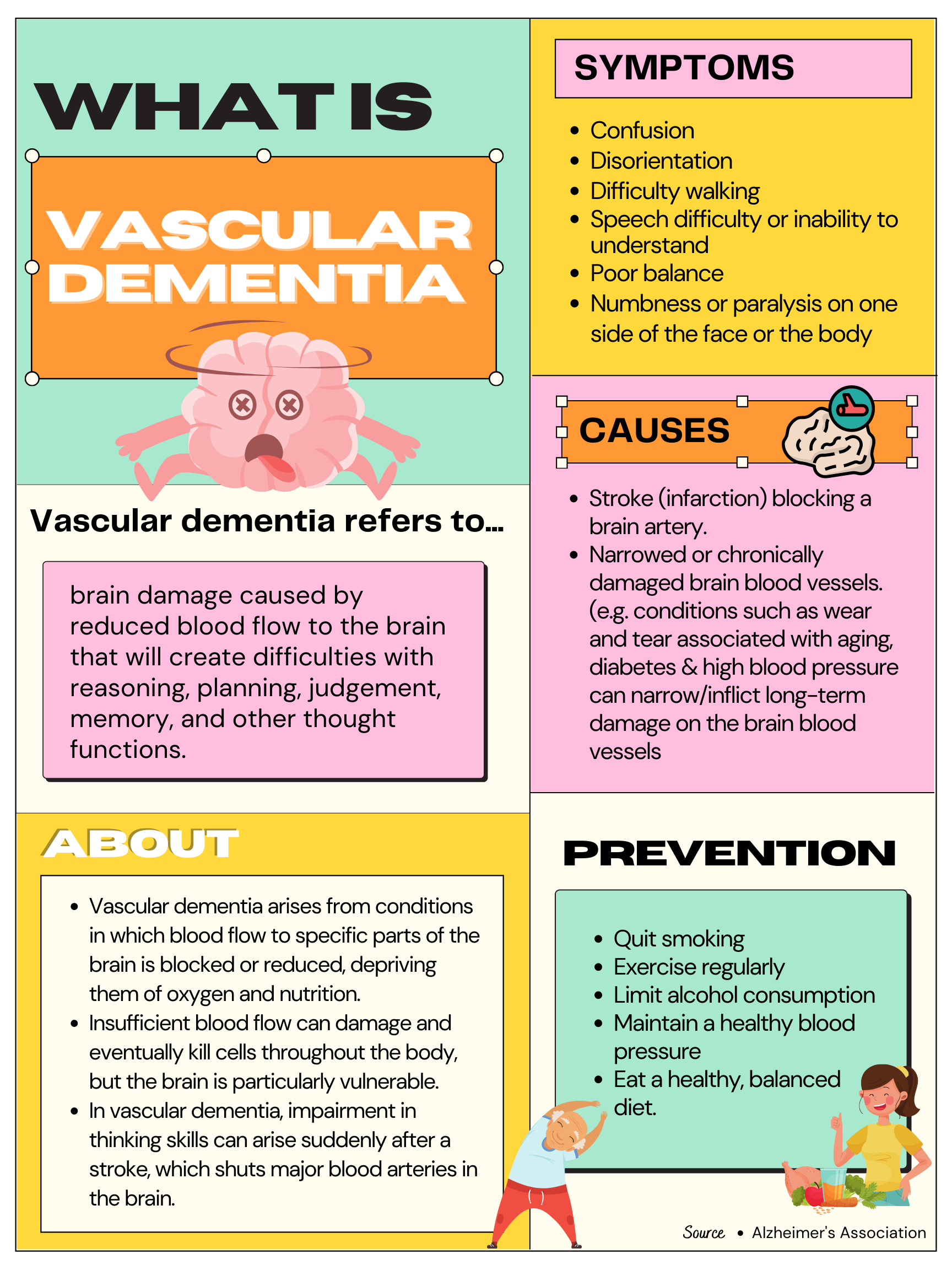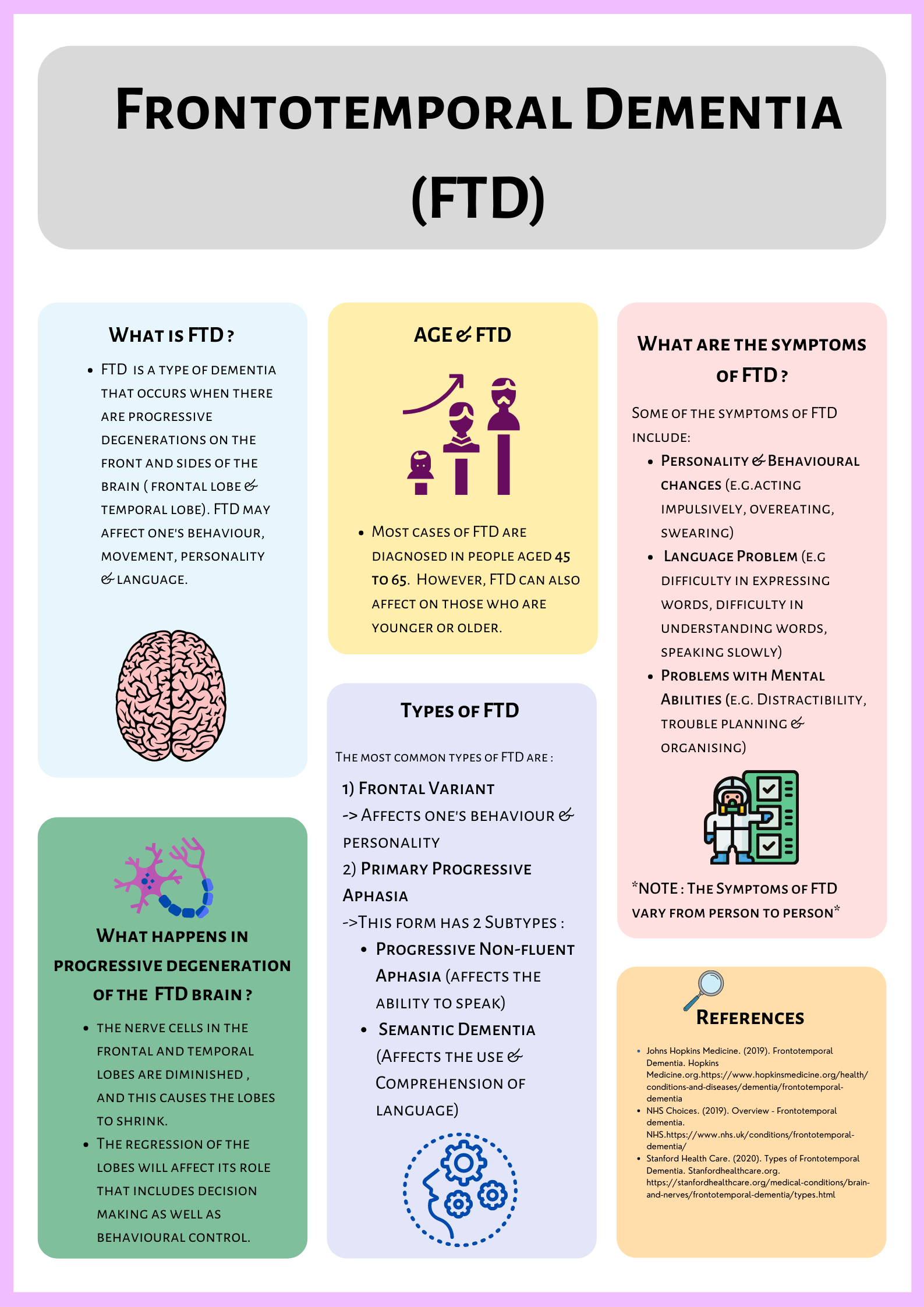Dementia is a term used to describe the symptoms of different diseases and conditions that affect the brain cells resulting in loss of memory and other mental abilities severe enough to interfere with daily life. There is no cure for these diseases but special medical treatment is available. Early diagnosis and treatment are quite important to handle symptoms and ti release stress for the affected ones and their caregivers.
1. Alzheimer’s Disease
Most common type of dementia; accounts for an estimated 60 to 80 percent of cases.
Symptoms: Difficulty remembering recent conversations, names or events and depression are often early symptoms. Later symptoms include impaired communication, poor judgement, disorientation, confusion, behaviour changes and difficulty speaking, swallowing and walking.
2. Parkinson’s Disease
As Parkinson’s disease progresses, it often results in a progressive dementia similar to dementia with Lewy Bodies or Alzheimer’s.
Symptoms: Problems with movement are common symptoms of the disease. If dementia develops, symptoms are often similar to dementia with Lewy Bodies.


3. Vascular Dementia
The next most common type of dementia is Vascular Dementia. It’s caused by a lack of blood flow to the brain and can be related to stroke. Vascular Dementia can cause vision problems and sometimes hallucinations as well.
Symptoms: Impaired judgement or ability to make decisions, plan or organize confusion and disorientation are common early signs.
4. Mixed Dementia
In Mixed Dementia, abnormalities linked to more than one cause of dementia occur simultaneously in the brain. Mixed Dimentia is very common, and the most common combination is Vascular Dementia and Alzheimer’s.
Symptoms: Mixed Dementia can cause different symptoms in different people. Some people experience memory loss and disorientation first, while others have behaviour and mood changes.

5. Dementia with Lewy Bodies (DLB)
Dementia with Lewy Bodies, also known as Lewy Body Dementia experience visual hallucinations and have trouble falling asleep at night or fall asleep unexpectedly during the day.
Symptoms: Initial or early symptoms such as sleep disturbances, well-formed visual hallucinations, and slowness, gait imbalance or other parkinsonian and Alzheimer movement features.
6. Frontotemporal Dementia
Frontotemporal Dementia is a name used to describe several types of dementia, all with one thing in common: They affect the front and side parts of the brain, which are the areas that control language and behaviour. It’s also known as Pick’s disease.
Symptoms: Typical symptoms include changes in personality, causing loss of inhibitions and motivation. It also causes people to have problems with speech, in cluding forgetting the meaning of common words.

7. Creutzfeldt-Jakob Disease
CJD is the most common human form of a group of rare, fatal brain disorders affecting people and certain other mammals. Variant CJD (“mad cow disease”) occurs in cattle, and has been transmitted to people under certain circumstances.
Symptoms: Rapidly fatal disorder that impairs memory and coordination and causes behaviour changes.
8. Normal Pressure Hydrocephalus
Caused by the buildup of excess fluid in the brain’s ventricles. Can sometimes be corrected with surgical installation of a shunt in the brain to drain excess fluid. Normal pressure hydrocephalus (NPH) causes include injury, bleeding, infection, brain tumour, previous brain surgeries.
Symptoms: Include difficulty walking, memory loss and inability to control urination.
9. Huntington’s Disease
Huntington’s disease is a progressive brain disorder caused by a single defective gene on chromosome 4.
Symptoms: Include abnormal involuntary movements, a severe decline in thinking and reasoning skills, and irritability, depression and other mood changes.
10. Wernicke-Korsakoff Syndrome
Kersakoff syndrome is a chronic memory disorder caused by severe deficiency of thiamine (Vitamin B-1). The most common cause is alcohol misuse.
Symptoms: Memory problems may be strikingly severe while other thinking and social skills seem relatively unaffected.
Other causes of dementia
Many disease can cause dementia in the later stages. For example, people with multiple sclerosis can develop dementia. It’s also possible for those with HIV to develop cognitive impairment and dementia, especially if they’re not taking anti viral medication.


